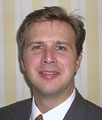Engineers Seek Quality of Life
 |
| HOARE |
Theres a certain stereotype associated with engineers. Weve all heard about the pocket-protector-sporting, calculator-wielding, introverted and boring typelacking that certain joie de vivre commonly associated with more "creative" professionals, such as writers, graphic designers and marketers. Heeding that stereotype, most would conclude that we Cyborg-like engineers wouldnt dream of taking a lesser-paying job just because it seemed like a great opportunity and personal fit. A robot doesnt have feelings, right?
What is the top priority for an engineer searching for a new job? Well, according to one of our recent surveys, its what the job entails. Of 736 respondents, almost 60% said the job itself is their first priority. A meager 19% were most concerned with pay.
Third on the groups list of priorities was the company. Then came other non-salary elements of the compensation package, such as company car and health insurance. Other factors that received votes included travel, location, supervisor, the opportunity to do what they felt they did best, stability, challenge, potential to gain work experience and the right fit. The answers reflect a number of important considerations and certainly a lot of thought and emotion went into their responses.
What else did we learn? Well, engineers like the personal touchthey dont care for anonymous classified ads or the drop-in-the-bucket feel of Internet job search boards. A whopping 81% of those surveyed reported that they preferred to speak directly with recruitment consultants when looking for job opportunities. This is a slight decrease compared to data collected from a similar survey conducted a year ago, where 90% preferred to speak directly to recruitment consultants even though 87% used the Internet in some fashion during their search for jobs.
The decrease is part of a trend where the Internet is playing an increasingly larger role in how employers, recruitment consultants and candidates interact together on line to make the whole hiring process faster and more efficient. Inevitably, things will settle at an optimum blend of the "human touch" and online collaboration. Where it settles is the real question, but it is very unlikely that there will ever be a situation where there is no human-to-human interaction in every hiring situation.
Although engineers like working with recruiters, many of those surveyed also wanted more contact with the recruiting agencies. More than 52% of those polled reported lack of feedback as their biggest complaint in working with agencies. About 30% reported too little personal contact as their primary beef with the recruiting process. So these respondents definitely want to communicate with people.
Those surveyed described themselves as being engineers, project managers, construction managers and superintendents, as well as commercial-services and procurement specialists.
Age was an important consideration in the results, with 48% of respondents over age 46, 16% between 36 and 40, 15% between 41 and 45 and 11% between 31 and 35. Seven percent were between 25 and 30 and less than 1% under 24.
About 66% of respondents reported that they had more than 10 years of experience and 19% said they had 6 to 10 years. About 10% reported one-to-five years of experience and 1.5% had less than a year of work background.
We engineers care about quality of lifewhich includes our careersas much, if not more, than anyone. We also arent shrinking violets. We actively seek to interact with others. All of those "creative" types in the flashier professions dont have a monopoly on the claim to a great career. A hefty paycheck simply isnt enough. First and foremost, we have to love what we do.

